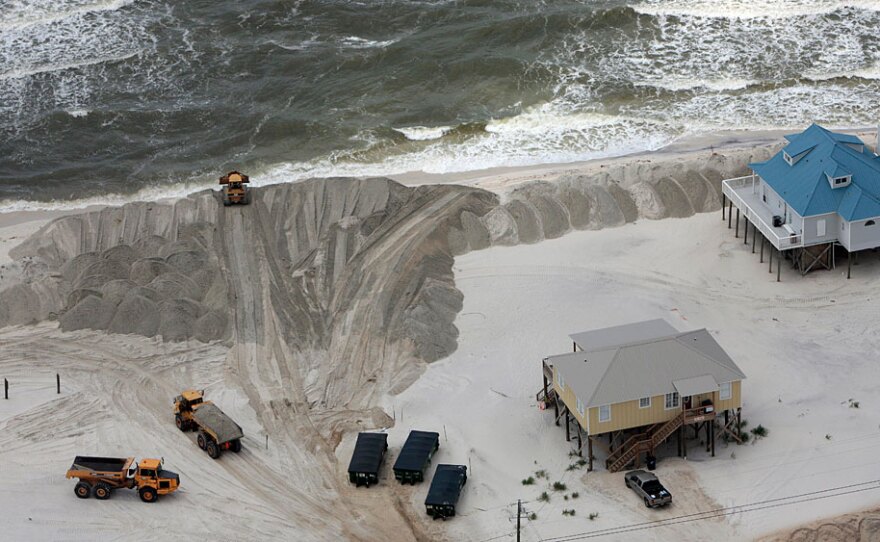Dredging is about to begin in the Gulf of Mexico that will create 40 miles of offshore sand berms. The goal: keep oil from reaching the Louisiana coast.
The state's governor, Bobby Jindal, and local officials have pleaded to get the construction started and blamed federal officials for dragging their feet.
But some scientists who've spent decades studying the fragile Mississippi River delta aren't sold on the berm idea, and they worry those berms could make things even worse.
Rob Young, a coastal geologist at Western Carolina University who's been working in the Gulf for 20 years, says he thinks the man-made sandbars will take six to nine months to finish. And he doesn't think they're going to last.
Every morning when I wake up, I'm not sure whether to call somebody in anger or to cry or to throw up.
"The structure that I see that they're planning to build is going to erode as soon as it's constructed, and it's going to have a tough time making it through a hurricane season that's predicted to be a fairly active one," Young tells NPR's Melissa Block. "I just don't have a very high level of confidence that a project that's going to require a lot of energy and a lot of sand and mobilize a lot of people is going to do what they promise it will do."
What's more, says Young, there could be unintended environmental consequences.
"We don't know how that structure will impact storm surge or waves or currents. And whether there are possibilities that it might in fact draw more wet oil through some inlets than in other areas," he says.
Young says he worries these plans are being made without enough scientific oversight.
"We need a better way to involve scientists and engineers in formulating these ideas and doing very, very rapid review of them once they've been proposed," he says. "The oil spill is going to be with us for years, not days. So it seems like spending a little time right now to put together a process for better but more rapid scientific review would be worth the trouble."
Despite his concerns, Young says he does empathize with the governor's urgency.
"I hate being viewed as someone who might be attempting to obstruct the action to project and save that coast," he says. "I'm just heartbroken and furious about the impacts of this particular spill. I mean, every morning when I wake up, I'm not sure whether to call somebody in anger or to cry or to throw up. But doing something just to be looking like you're doing something is not the right thing to do."
Copyright 2022 NPR. To see more, visit https://www.npr.org. 9(MDAzMjM2NDYzMDEyMzc1Njk5NjAxNzY3OQ001))






